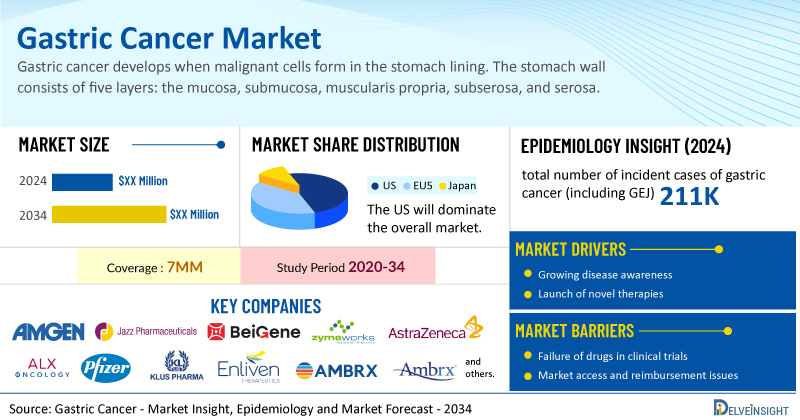AI Sentiment: Very Bullish
Reason: The gastric cancer market is set for robust growth due to innovative therapies, increased awareness, and strategic collaborations enhancing treatment options.
The gastric cancer market is experiencing significant growth, driven by the development of innovative therapies and increasing demand for effective treatment options. As the global population ages and risk factors for gastric cancer become more prevalent, the need for advanced therapeutic solutions is more pressing than ever. According to recent analyses, the market is expected to flourish, with a forecast indicating a robust expansion through 2034.
One of the main catalysts for this growth is the introduction of novel therapies that target specific pathways involved in the progression of gastric cancer. These advanced treatments are designed to improve patient outcomes by offering more personalized approaches to therapy. Clinical trials are currently underway, showcasing the efficacy of these new treatments that promise to change the landscape of how gastric cancer is managed.
Moreover, the rise in awareness about gastric cancer and its symptoms among healthcare professionals and the general public is facilitating earlier diagnosis and intervention. This increased awareness is crucial, as early detection significantly improves prognosis and treatment success rates. As a result, healthcare systems worldwide are prioritizing gastric cancer screening and education, further driving market growth.
In addition to novel therapies, the market is also influenced by the strategic collaborations between pharmaceutical companies, research institutions, and healthcare providers. These partnerships are fostering innovation and accelerating the development of new treatment options. As companies invest in research and development, the pipeline for gastric cancer therapies continues to expand, promising a variety of choices for patients in the near future.
Furthermore, advancements in technology and research methodologies are enhancing the understanding of gastric cancer biology, leading to the identification of new therapeutic targets. This is paving the way for the development of targeted therapies and immunotherapies, which are gaining traction in clinical settings.
In conclusion, the gastric cancer market is on a growth trajectory, propelled by novel therapies and increased awareness. As the healthcare landscape continues to evolve, the focus on innovative treatments and early diagnosis will play a crucial role in improving outcomes for patients battling this challenging disease. The future looks promising, with ongoing research and development set to transform the management of gastric cancer in the years to come.




